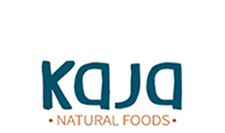Pencil thin, stuffed grape leaves, finely crafted patties, milk-based desserts, a plate of güllaç, colored with pomegranate grains, a plentiful scoop of meat pilaf... Although each of the dishes is expected to sweeten our palates as an invariable part of our Ramadan tables, not tiring the bodies starve for a long time with too much food is the golden key to a healthy diet in Ramadan. Let's take a look at healthy nutrition recommendations for Ramadan...
The Most Delicious Way to Lose Weight: Light Cooking
Fasting people in Ramadan are prone to feel very hungry no matter how old they are as they fast for about 16 hours. There is no reason why a meal worth waiting for iftar hour without taking food and liquids all day should not consist of your favorite foods. You can comfortably include meals cooked with healthy oils, marinated with vegetables with vitamins, flavored with the most delicious tomatoes, and with enough salt and sugar in your Ramadan diet. The steaming and baking method increases the lightness of your dishes.
Main Meal okay, But What About Snack?
Balancing eating intervals is the magic of it. Neither eating consecutively nor starving for hours paves the way for proper and balanced nutrition in Ramadan. Intermittent snacks between iftar and suhur at 1.5-hour intervals prevent you from eating excessively during dinner. However, the number is as important as the intervals. Not exceeding two snacks as a condition for adequate and balanced nutrition is one of the recommendations of the Ministry of Health.
Not Liters, But Also Not a Glass: How to Maintain Water Balance
Limiting caffeine consumption such as tea and coffee and not excessively consuming beverages makes the body ready for a healthy foundation for fasting. You can always make your surviving bodywork with a sufficient and balanced amount of water with minimum food. According to the Turkish Heart Foundation, reducing caffeine and increasing the daily amount of water intake to a minimum of 9 glasses is one of the preconditions for the smooth functioning of the metabolism and digestive system.
A Healthy Life Classic: Abstaining from the “Three White”
Flour, salt, sugar... It is beneficial to put a "social distance" between you and these three whites, especially during Ramadan, although the dishes become more delicious with them. If you say, "I'm fond of delicious foods," there's an equivalent: honey instead of sugar, oatmeal, or quinoa instead of flour. Spices such as cumin and thyme will increase your dishes' flavor so that you will need salt less at this point. You can also choose to consume browns instead of whites due to Turkey's predisposition to blood pressure and diabetes.
Brown Bread is Acceptable
If we say that the way to eat healthily and lose weight in Ramadan is to give up bread suddenly, we would be wrong. Like any food, eating small amounts of bread both soothes your hunger and soothes your stomach. If you prefer brown and bran kinds in bread, pasta, and sugar, your digestion will also be greatly facilitated.
Will we forget dessert for a month?
We know that you cannot say no to a plate of güllaç, softened with milk; baklava with lots of walnut on each layer; and puddings that you can make quickly and pour into bowls. You don't have to take dessert out of your life during Ramadan. Paying maximum attention only to its type and quantity will be the greatest "sweetness" you will do for your heart health. Turning to milk- and fruit-based desserts instead of syrup, dough, and heavy desserts is a solution that will both make you healthier and satisfy your sweet craving. And if you ask which ones, examples such as rice pudding, güllaç, fruit charlotte can be given.
Don't Skip the Suhur or the Salad
You need to eat a healthy and balanced meal and be hydrated enough to endure the hunger that will last all day. The way to do this is through nutrients that don't make your stomach upset, like rosehip, tomato, linden, and herbal teas. Salad, which you can consume abundantly in iftar and as a snack, reflects positively not only on your heart health but also on your mobility.
Avoid Dangerous Offers: “Eat Another Slice”
It is up to you to say "stop" to the insistence of your grandmother, neighboring aunt, and sister-in-law. You should not yield to the insistence for a minimum of 2 slices of baklava at each family visit. Taking short distance family visits on foot will return to your fitness as a bonus point during Ramadan as a great advantage.
Constant Motto: Less Food, More Work
A law that applies in all areas of life; much movement, much vitality. Activities such as clearing the table after dinner, cleaning the dishes, unloading the dishwasher support your digestion of the food greatly, although it may seem hard on your tired body after iftar.
Time to Get Your Hands to Work!
The small balls you prepare at home with oats, milk, and fruit help you avoid your sweet craving and make it easier to stay indifferent to persistence. It also makes you feel like you are eating quality with healthy pastries that you ferment and blend with oats and brown flour instead of bread. Probiotic and high calcium beverages such as ayran and yogurt provide refreshment. In addition, healthy Ramadan is about healthy foods, and you should make sure that the products you buy are organic and natural.
Jr. SousChef is a helper you can rely on upon with its organic products while fulfilling dietary recommendations during Ramadan. You can visit Jr. SousChef to flavor your meals with organic, healthy, and quality dips, to enrich the nutritional value with sauces, natural mixtures, and organic tomato purées, ingredients of which are collected from healthy soils, processed, and delivered to your table.



